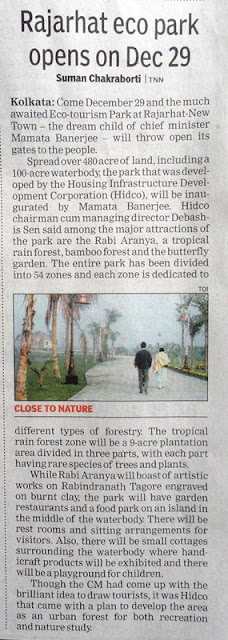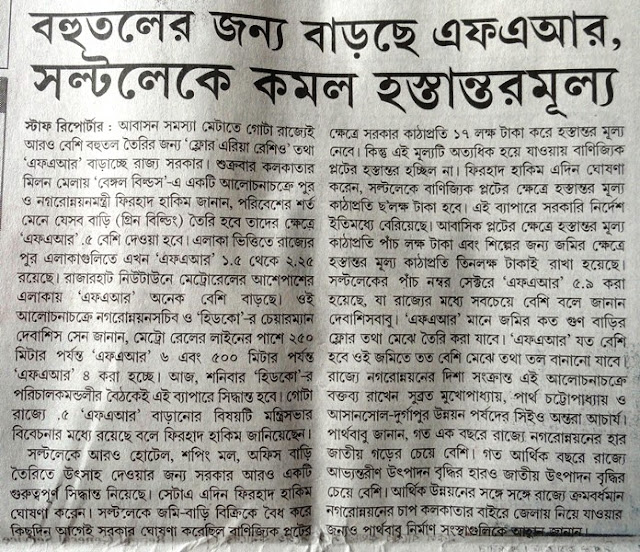Solid Waste Management is becoming a great issue for our cities and towns. Conventional landfill areas are getting exhausted and additional ones very difficult to locate. For Kolkata / Salt Lake / New Town Rajarhat, the problem will become more and more acute as the years pass. What is needed is therefore a concerted effort at policy level, implementation level and personalised behavioral level so that we not only emphasise the 3Rs (Reduce, Re-use and Recycle), but also use technological and managerial expertise.
Last Friday, I had a discussion with HE Mr Sanjay Wadvani, British Deputy High Commissioner of Kolkata in Hidco Bhavan and mentioned that Zero Waste is a goal that we would like to focus on.
I quote from a concept paper of UNRCD presented recently in India at the end.
* * *
Here s a clipping from today's Times of India:
* * *
The United Nations Conference on Sustainable Development
(UNCSD), or Rio+20 Conference, highlighted sustainable cities as one of the
priority areas. Together with growing urbanization, waste management is becoming
a major and growing public health and environmental concern in urban areas of
many developing countries. With the diversification of waste streams worldwide
as well as the growing presence of e‐waste, chemicals, hazardous and toxic
elements in the general waste stream, the complexity and daunting nature of
waste management challenges have gone beyond the capacity of many
municipalities – in terms of finance, technology, and institutional mandate,
resulting in unprecedented impact on quality of life, human health, freshwater
resources and wetlands, local environment and ecosystem, including costal and
marine ecosystem. Open dumping, open burning and over reliance on land‐filling
is still predominant in many parts across the world and Asia, without much
efforts towards prevention and minimization of wastes at first hand. At the
same time, absence of effective policies and programs at city and local level
and lack of required infrastructures (for collection, storage,
handling/processing, treatment, recycling, waste to energy, etc.) have made
most of the Asian cities beyond livable.
In the Rio+20 outcome document, Future We Want, the Heads of
State calls for increasing resource efficiency and reduction of waste to
achieve green economy in the context of sustainable development and poverty
eradication, and new and innovative public‐private partnerships to enhance
capacity and technology for environmentally sound waste management. In response
to this, there is a critical need for city and municipality authorities to
fundamentally orient the policy directions aiming towards resource efficient
and zero waste society. Zero waste has been recognized as a valuable concept to
guide the cities and nations in the world. The concept of Zero Waste aims to minimize
use of resources and maximize the ongoing benefits of the intrinsic value
within the waste generated by society.






























.jpg)


















